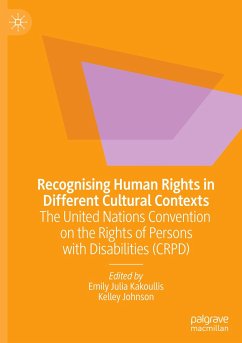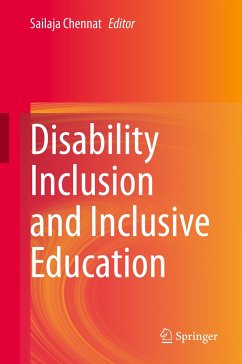
Recognising Human Rights in Different Cultural Contexts
The United Nations Convention on the Rights of Persons with Disabilities (CRPD)
Herausgegeben: Kakoullis, Emily Julia; Johnson, Kelley
Versandkostenfrei!
Versandfertig in 6-10 Tagen
98,99 €
inkl. MwSt.

PAYBACK Punkte
49 °P sammeln!
This book explores the journey of the United Nations Convention on the Rights of Persons with Disabilities (CRPD) as it is interpreted and translated from International Human Rights Law into domestic law and policy in different cultural contexts. Beginning with reflections on 'culture', 'disability' and 'human rights' from different disciplinary perspectives, the work is then organised as 'snapshots' of the journey of the CRPD from the international level to the domestic; the process of ratification, the process of implementation, and then the process of monitoring the CRPD's implementation in...
This book explores the journey of the United Nations Convention on the Rights of Persons with Disabilities (CRPD) as it is interpreted and translated from International Human Rights Law into domestic law and policy in different cultural contexts. Beginning with reflections on 'culture', 'disability' and 'human rights' from different disciplinary perspectives, the work is then organised as 'snapshots' of the journey of the CRPD from the international level to the domestic; the process of ratification, the process of implementation, and then the process of monitoring the CRPD's implementation in States Parties cultural contexts. Leading global contributors provide cutting-edge accounts of the interactions between the CRPD and diverse cultures, revealing variations in the way that the concept of 'culture' is defined. This collection will appeal to academics and students in Law and Socio-Legal Studies, Disability Studies, Policy Studies and Social Work, Sociology, Anthropology; and those training to be service providers with persons with disabilities.














